Introduction
Lithium Niobate (LiNbO3, LN) has emerged as a vital material in the scientific and industrial world. As a piezoelectric crystal, it plays a significant role in diverse applications. In this article, we delve into the intriguing properties of LiNbO3 and its various applications.
Understanding the Properties of LiNbO3 Crystal
Thermal Properties
Thermally, lithium niobate crystals exhibit excellent stability. They possess a high Curie temperature, usually around 1142°C, implying their ability to maintain piezoelectric properties at elevated temperatures. This stability ensures that they maintain their functionality under conditions of intense heat, increasing their usefulness in high-temperature applications.
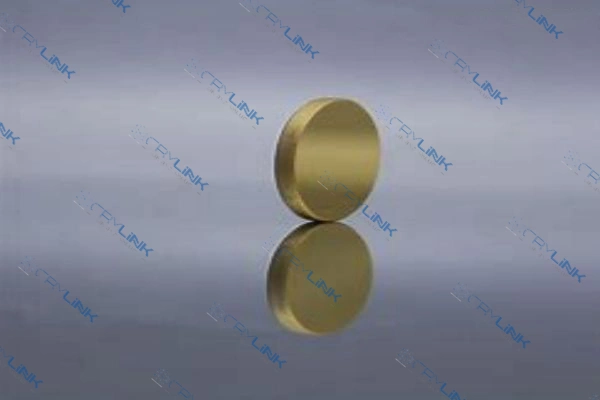
Mechanical Properties
Mechanically, lithium niobate is relatively hard and durable. The crystal’s hardness is around 5 on Mohs scale, similar to that of glass or tooth enamel. This property enhances its resistance to physical stress, making it an ideal choice for applications that require mechanical resilience.
Acousto-Optic Properties
LiNbO3’s acousto-optic properties are impressive, with a high acousto-optic figure of merit. This crystal can efficiently couple acoustic and optical waves, allowing for modulation of light using sound. This property is employed extensively in acousto-optic devices.
Ferroelectric Properties
LiNbO3 is a ferroelectric crystal, meaning it has a spontaneous electric polarization that can be reversed by the application of an external electric field. This characteristic is exploited in memory devices, electro-optic devices, and other applications where control of electrical polarization is critical.
Physical Properties
A vital attribute of the lithium niobate crystal is its significant optical nonlinearity, which contributes to its wide use in optics. The crystal exhibits birefringence, enabling the separation of a light beam into two orthogonally polarized beams.
Chemical Properties
LiNbO3 demonstrates exceptional chemical stability, which adds to its desirability in several applications. It has a high resistance to water and other chemicals, making it suitable for applications that necessitate resilience against chemical reactions.
Electrical Properties
As a piezoelectric material, lithium niobate possesses the unique ability to generate electric charge in response to mechanical stress. This property is harnessed in a broad range of devices, including sensors and transducers.
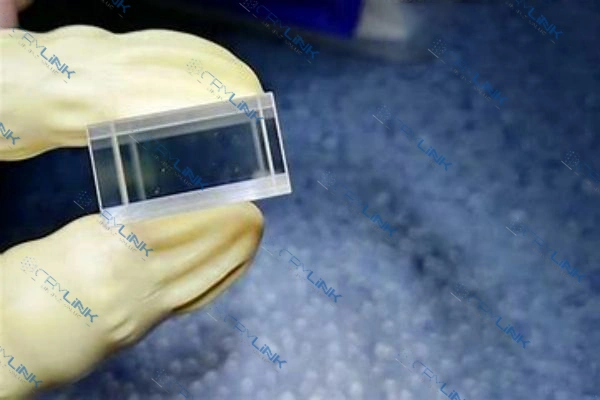
Optical Properties
LiNbO3 crystals exhibit remarkable optical properties. They possess high transmission capabilities in the spectrum from the visible to the mid-infrared region. This wide transmission range has made them pivotal in optical applications.
Diving into Applications of LiNbO3 Crystal
Optoelectronics
In optoelectronics, lithium niobate’s outstanding electro-optic properties make it a prime choice for various devices, including modulators and switches. It has excellent waveguiding properties, which allows the creation of integrated optics.
Telecommunications
In the telecommunications industry, lithium niobate crystals are used in components such as modulators. These crystals enable faster signal transmission and improve communication efficiency.
Acousto-Optics
Acousto-optic devices rely heavily on the properties of lithium niobate. Its high acousto-optic figure of merit makes it ideal for devices like tunable filters and frequency shifters.
Nonlinear Optics
Nonlinear optics is another area where LiNbO3 shines. It is extensively used in frequency conversion processes like second harmonic generation, owing to its high nonlinear optical coefficients.
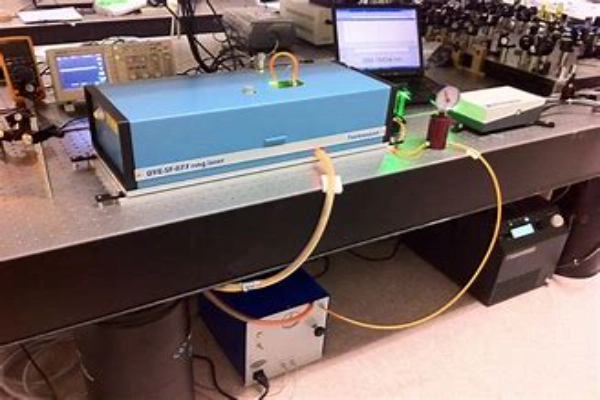
Lasers
The exceptional optical properties of lithium niobate make it a prime candidate for use in laser technology. Its broad transparency range and high damage threshold allow for its use in high-power, frequency-doubled lasers and waveguide lasers.
Electro-Optic Modulators
LiNbO3’s strong electro-optic effect and high-speed response make it ideal for fabricating high-speed electro-optic modulators. These devices modulate a light wave of a given frequency using an electrical signal, vital in optical communication systems.
Q-Switches
LiNbO3 crystals are used as active materials in Q-switches for lasers, a device that controls the laser light’s intensity. Thanks to their high electro-optic coefficients and low half-wave voltages, they offer excellent performance.
Infrared Detectors
The wide transmission range of lithium niobate crystals, especially in the mid-infrared region, makes them suitable for infrared detectors. These devices are critical in applications such as thermal imaging, night vision, and spectroscopy.
Sensor Technology
In sensor technology, LN’s piezoelectric property comes to the fore. The ability to generate an electric charge in response to applied mechanical stress makes lithium niobate ideal for various sensors, including pressure, acoustic, and vibration sensors.
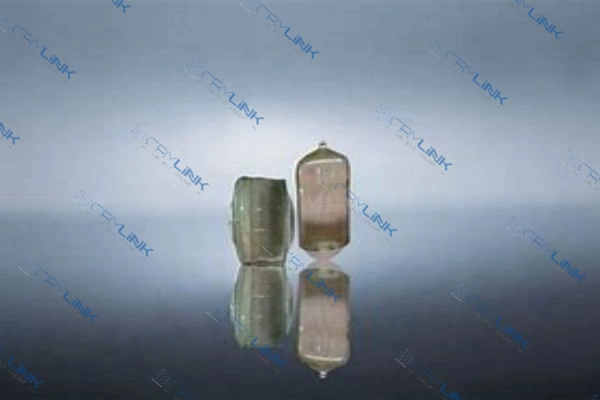
Holographic Storage
In the field of data storage, lithium niobate crystals have a place in holographic storage systems. Thanks to their photorefractive effect, they can store data in three dimensions, increasing the storage capacity compared to conventional data storage techniques.
Biomedical Applications
In the biomedical field, the unique properties of lithium niobate are exploited in various ways. For example, its piezoelectric properties are leveraged in ultrasound technologies, enabling imaging and therapeutic applications. From ultrasonic scalpel devices to high-intensity focused ultrasound (HIFU) for non-invasive surgical procedures, LiNbO3’s contribution to the biomedical field cannot be overstated.
Micro-Electro-Mechanical Systems (MEMS)
Micro-Electro-Mechanical Systems, or MEMS, benefit from the diverse properties of lithium niobate. Given its piezoelectric, pyroelectric, and electro-optic characteristics, LiNbO3 is employed in MEMS devices, including microactuators, microsensors, and energy harvesters.
Photovoltaic Devices
In photovoltaic devices designed for solar energy conversion, lithium niobate shows promise. The crystal’s wide bandgap and strong light absorption capability make it an attractive material for solar cells. Research is ongoing to exploit this property for improved energy harvesting.
Quantum Computing
Quantum computing, the frontier of modern computation, utilizes the nonlinear optical properties of LiNbO3. The crystal is used in the development of quantum gates and other quantum information processing devices, which promise significantly enhanced computational capabilities.
Photonics and Integrated Optics
LiNbO3 is a key material in the field of photonics and integrated optics. Thanks to its superior electro-optic and nonlinear optic properties, it is used to fabricate a wide range of photonic components, including waveguide amplifiers, lasers, modulators, and switches. These components are crucial for the transmission, manipulation, and detection of light in various applications, from telecommunications to medical diagnostics.
Environment Monitoring
The sensitivity of lithium niobate to environmental changes is exploited in environmental monitoring. Sensors based on this crystal are employed to detect variations in parameters such as temperature, humidity, pressure, and gas concentration. As such, LiNbO3 contributes to maintaining and improving environmental health and safety.
Surface Acoustic Wave (SAW) Devices
SAW devices find application in several fields, including telecommunications and signal processing. LiNbO3’s piezoelectric property and excellent temperature stability contribute to its widespread use in SAW devices.
SAW Filters
LiNbO3 is commonly used in SAW filters due to its outstanding piezoelectric and temperature-compensating properties. These filters are essential in wireless communication systems, where they select the desired frequency band and reject unwanted frequencies, significantly improving the system’s performance.
SAW Oscillators
The excellent piezoelectric properties of lithium niobate are harnessed in SAW oscillators. These devices convert DC power into a specific frequency, providing a stable signal that’s used in a variety of applications, from telecommunications to industrial process control.
SAW Delay Lines
SAW delay lines, which delay electrical signals for specific intervals, often use lithium niobate. The piezoelectric property of this crystal enables the conversion of electrical signals into acoustic waves and vice versa, effectively creating the required delay.
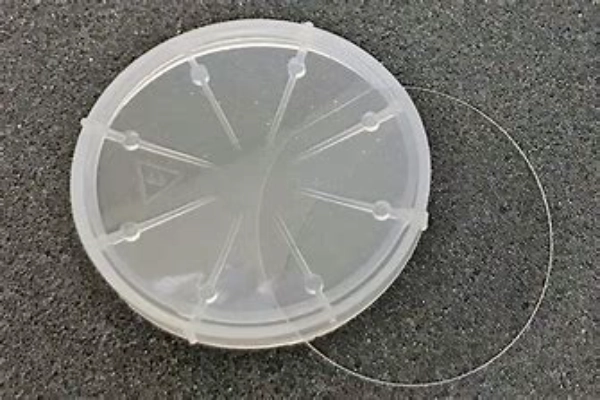
SAW Sensors
SAW sensors, employed in detecting physical or chemical phenomena, utilize lithium niobate due to its piezoelectric characteristics. These sensors can monitor parameters like pressure, temperature, or chemical concentration, contributing significantly to fields like environmental monitoring and healthcare.
SAW Resonators
LiNbO3 is frequently used in SAW resonators, which are integral to various electronics and telecommunications equipment. Its stable piezoelectric behavior enables the generation of precise frequencies, ensuring accurate and reliable signal processing.
Conclusion
In summary, the Lithium Niobate (LiNbO3) crystal is undoubtedly a powerhouse in the scientific and technological realms. Its multifaceted properties, spanning optical, electrical, chemical, and mechanical dimensions, open up a plethora of applications that leverage this crystal’s unique capabilities.
LiNbO3’s unrivaled prominence in optoelectronics, telecommunications, acousto-optics, and SAW devices is a testament to its versatility and utility. In addition, its emerging role in cutting-edge fields like quantum computing, integrated optics, photovoltaics, and biomedical applications illustrates the immense potential and future growth of this crystal.
Moreover, the continued research and development into the properties and applications of LiNbO3 reveal an exciting frontier for innovation. The expanding boundaries of this crystal’s applications are a promise of remarkable technological advancements, potentially revolutionizing industries and leading to unprecedented solutions to global challenges.
Therefore, the relevance and influence of LiNbO3 in scientific and technological advancements are far from exhaustive. As we continue to uncover the full extent of LiNbO3’s potential, one thing remains clear – the journey of exploring and understanding this crystal is as fascinating as the crystal itself, heralding an exciting era of scientific discovery and technological innovation.
FAQs
- What is LiNbO3?
LiNbO3 is a piezoelectric crystal known for its various unique properties, including exceptional chemical stability and significant optical nonlinearity. - What makes LiNbO3 suitable for optoelectronics?
LiNbO3’s excellent electro-optic and waveguiding properties make it ideal for optoelectronic applications. - Why is LiNbO3 used in telecommunications?
The use of LiNbO3 in telecommunications is due to its capability for faster signal transmission, which improves communication efficiency. - How is LiNbO3 utilized in nonlinear optics?
LiNbO3 is used in nonlinear optics for frequency conversion processes, such as second harmonic generation, due to its high nonlinear optical coefficients. - What role does LiNbO3 play in SAW devices?
LiNbO3’s piezoelectric property and excellent temperature stability make it widely used in Surface Acoustic Wave (SAW) devices.

Frank
Frank graduated from the University of Shanghai for Science and Technology, majoring in optics. As a technical engineer at Crylink Company, he deeply understands crystal materials and laser components.
Related Video(s) with this Article
Related Product(s) with this Article
Related Application(s) with this Article





